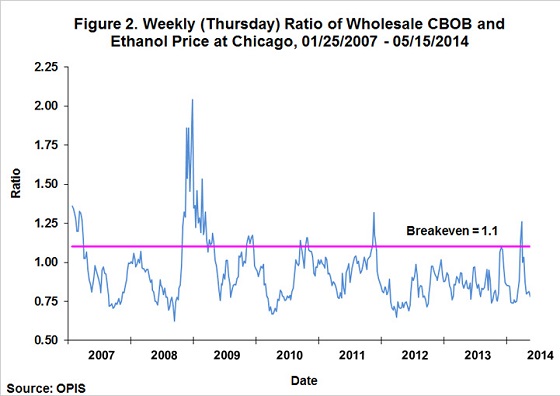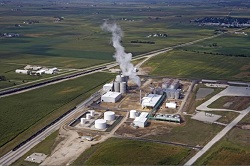 With the unofficial start of summer, there’s no doubt you’ll be at picnics, reunions, get-togethers, etc., and there’s a pretty good chance that if you’re involved in ethanol, there’ll be somebody wanting to debate its merits… or more specifically, its evils. This article from Ethanol Producer Magazine relates a conversation the managing editor had on how corn ethanol is not the villain it is portrayed to be.
With the unofficial start of summer, there’s no doubt you’ll be at picnics, reunions, get-togethers, etc., and there’s a pretty good chance that if you’re involved in ethanol, there’ll be somebody wanting to debate its merits… or more specifically, its evils. This article from Ethanol Producer Magazine relates a conversation the managing editor had on how corn ethanol is not the villain it is portrayed to be.
One of my main points to her was that advanced biofuels wouldn’t be an option if it wasn’t for the first generation industry. I’ve said it before and I’ll say it again, many of the same companies that now produce corn ethanol are also working to produce cellulosic ethanol. One example is a small plant in Galva, Ill., that is working to start up a bolt on technology that will produce ethanol from the cellulosic material in a corn kernel. Other current corn ethanol producing companies are targeting corn stover for cellulosic ethanol production. My friend was surprised to hear how close some of these companies are to completing construction and producing commercial-scale volumes of advanced biofuels.
I then addressed the “corn-ethanol is bad” impression she had, with analogy I’ve used before. We’re both mothers of young daughters so it’s one that makes sense to both of us. Children don’t come out of the womb walking. They must first master some basic skills like sitting up and rolling over. And then, once they do walk, it’s not like they abandon sitting up and rolling over because they are “bad” skills or things only babies do. The U.S. corn ethanol industry has already done a lot of good for this country, by reducing oil imports and providing jobs, for example, and it will continue to contribute positively in the future.
She was able to continue her case by pointing out how the corn ethanol industry has improved its efficiency, knocking holes in arguments that it costs more energy to produce it than it produces.
You might not convince everyone on the facts you know are true about ethanol and its relationship to corn, but at least you should be well-armed in the fight.










